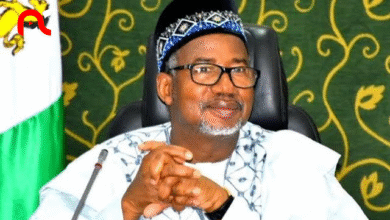Father’s Day Special: The Silent Weight Men Carry: How Societal Pressures Are Deepening Men’s Health Burdens

As the world marks Father’s Day—a tribute to the strength, sacrifice, and steadfast presence of fathers—the spotlight is shifting from celebration to introspection. Beneath the surface of stoicism and societal expectations lies a complex, often ignored crisis: the declining health of men, exacerbated not only by lifestyle choices but by deeply entrenched societal roles.
In a revealing interview with the News Agency of Nigeria (NAN), Dr. Adesida Adewumi, a Consultant Family Physician and Public Health Specialist, underscores how multi-dimensional pressures—from work to wellness, faith to fatherhood—are stretching men to breaking points, often in silence.
A Gendered Burden: Health Beyond the Physical
According to Dr. Adewumi, men between the ages of 20 and 60 are most affected by this multi-layered health burden—one made worse by poor health-seeking behaviours and cultural scripts that discourage vulnerability. The result is a silent epidemic.
“Men are more likely to suffer in silence, delay check-ups, and downplay symptoms until it’s too late,” says Adewumi. “This stoicism isn’t strength; it’s a public health risk.”
Common physical conditions include:
- Hypertension, Type 2 diabetes, and heart disease, often linked to stress, poor diet, and sedentary lifestyles;
- Sexual health issues like erectile dysfunction and low testosterone;
- Substance abuse, and increasing cases of sleep disorders such as sleep apnea and chronic insomnia.
The Mental Health Chasm
Mental health is perhaps the most underreported and misunderstood aspect of men’s wellness. Dr. Adewumi points to a rise in depression, anxiety, burnout, and chronic stress, largely driven by the pressures of providing, long work hours, and emotional suppression.
Men are also more likely to die by suicide, often using more lethal means and rarely seeking help due to fear of stigma.
“Addiction becomes a self-medication tool,” he explains. “Without emotional outlets or mental health literacy, men internalise distress until it spills over in damaging ways.”
Spiritual & Social Disconnect: The Unseen Scars
Beyond the physical and psychological, many men grapple with a spiritual void—a midlife identity crisis, detachment from faith institutions, and a loss of meaning. This is further worsened by unresolved guilt, shame, or societal expectations to suppress doubt and emotional struggles.
Socially, men face isolation—especially after career disruptions or relationship breakdowns. The demand to be financial providers while also embracing modern expectations of emotional availability in parenting adds layers of invisible stress.
Solutions Rooted in Lifestyle, Literacy & Support
Dr. Adewumi prescribes a holistic, preventive approach to restoring men’s health and dignity. Key recommendations include:
- Diet & Fitness: Adopt a nutrient-rich diet with lean proteins, healthy fats, and fibre. Commit to 150 minutes of moderate physical activity weekly.
- Routine Screenings: Check for blood pressure, blood sugar, cholesterol, prostate health, and other preventable conditions.
- Sexual Health: Destigmatise discussions and prioritise regular consultations.
- Substance Avoidance: Limit alcohol, quit smoking, and stay clear of recreational drugs.
He also calls for:
- Financial literacy workshops and career resilience training;
- Ergonomic and safety compliance at workplaces;
- Parenting involvement and emotional intelligence development, starting with communication skills;
- Flexible work structures and mentorship programs that encourage male bonding and vulnerability.
BRANDECONOMY INSIGHT: From Crisis to Culture Shift
The Men’s Health crisis isn’t just a medical issue—it’s a cultural reckoning. Father’s Day offers not just a time for gifts and gratitude, but a wake-up call for public health leaders, families, and workplaces to rethink how society supports the men who hold so many roles, yet carry so few outlets.
The solution lies not in asking men to toughen up—but in creating ecosystems that allow them to open up.
“Long-term well-being depends on proactive care, meaningful connections, and supportive environments,” says Adewumi. “Because healthy fathers build healthier families—and ultimately, a healthier society.”











